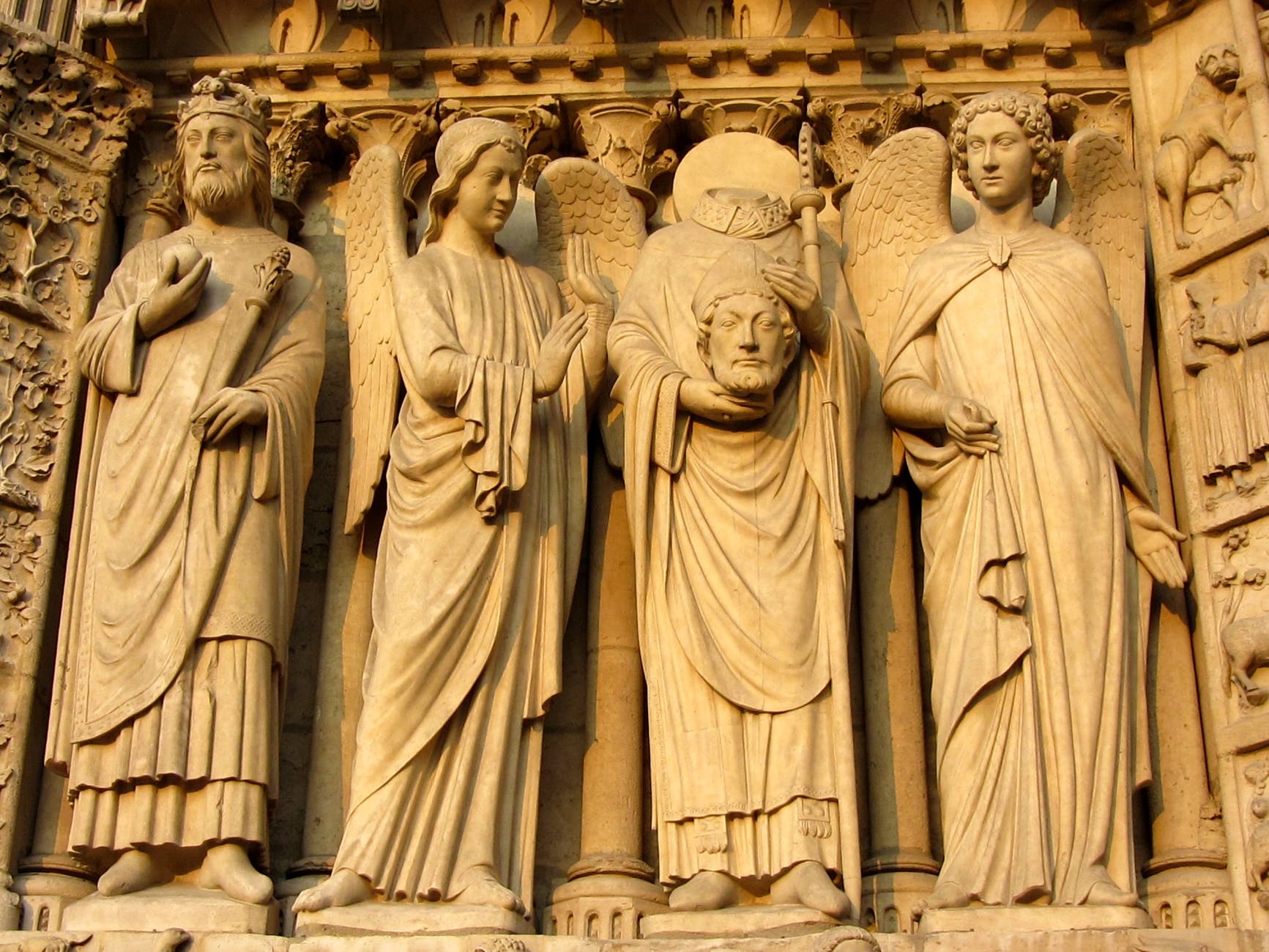What is heresy? What makes one a heretic? Let’s look at what the word truly means:
“From a Greek word signifying (1) a choice, (2) the opinion chosen, and (3) the sect holding the opinion. In the Acts of the Apostles (Acts 5:17; Acts 15:5; Acts 24:5, 14; Acts 26:5) it denotes a sect, without reference to its character. Elsewhere, however, in the New Testament, it has a different meaning attached to it. Paul ranks “heresies” with crimes and seditions (Gal 5:20). This word also denotes divisions or schisms in the church (1Co 11:19). In Tit 3:10 a “heretical person” is one who follows his own self-willed “questions,” and who is to be avoided. Heresies thus came to signify self-chosen doctrines not emanating from God (2Pe 2:1).”[i]
If we look at the Strong’s for help we find, “Greek Word: αἵρεσις (Transliteration: hairesis), English Words used in KJV: sect 5, heresy 4, [Total Count: 9] from (haireomai); properly a choice, i.e. (special) a party or (abstract) disunion :- heresy [which is the Greek word itself], sect.”[ii] So, in the proper sense of the word, as used in Paul’s day, αἵρεσις would mean someone that brought division and by extension, it means those things they TAUGHT or DECLARED (we could say, preach) are/were heresies.

Heresies are something the early church dealt with, and today the word is thrown around willy-nilly by every stripe of Christianity. Sadly, Calvinists often declare Arminians heretics, Arminians declare Calvinists so, and both throw the Molinists under the proverbial heretical-bus. This article is not intended to argue what is or isn’t heretical. I think the word has lost its meaning. I think it is watered down. Every whim of someone declares another, heretical. I also agree ‘heresies’ exist, as we define it today. It is obvious that denying; the Trinity, Christ is God, and salvation by any other means than “by grace through faith”, are all heretical and should be declared as so. Yet, I will show that the one true meaning of the idea of ‘heretic’ has been lost today…and the danger that many with the TRUTH may be heretical in one aspect of the Biblical meaning.
ARE YOU A HERETIC?

My argument is based on two passages, the first is, “A man that is an heretick after the first and second admonition reject;”[iii] which is talking about more what the man was DOING than what he was saying. Notice, the context of the verse in a different translation and how the word ‘heretick’ is rendered, “This is a trustworthy saying, and I want you to insist on these teachings so that all who trust in God will devote themselves to doing good. These teachings are good and beneficial for everyone. Do not get involved in foolish discussions about spiritual pedigrees or in quarrels and fights about obedience to Jewish laws. These things are useless and a waste of time. If people are causing divisions among you, give a first and second warning. After that, have nothing more to do with them.”[iv] ‘Divisions’ is how the NLT translates the word, ‘heretick’. Another translation is similar, “Reject a divisive person after a first and second warning,”[v] showing that the translators have used ‘divisive person’ as a good rendering of ‘heretick’.
HERESY IN THE EARLY CHURCH

My second passage is lengthier and details the idea that being a heretic has more to do with how you are behaving than what you are saying. Paul wrote to the church at Corinth to address numerous problems. One problem mentioned in 1 Corinthians was the division that existed in the early congregation, “For it has been reported to me about you, my brothers, by members of Chloe’s household, that there is rivalry among you.”[vi] So, Paul begins to describe the issue, as he gets to the heart of it, “Some of you are saying, “I am a follower of Paul.” Others are saying, “I follow Apollos,” or “I follow Peter,” or “I follow only Christ.” Has Christ been divided into factions? Was I, Paul, crucified for you? Were any of you baptized in the name of Paul? Of course not! I thank God that I did not baptize any of you except Crispus and Gaius, for now no one can say they were baptized in my name.”[vii] We begin to see the schism that had begun to rear its ugly head in the fledgling church.
A more literal, word for word, translation (clunky as it is) really helps us see the issue Paul was dealing with, “and I say this, that each one of you saith, `I, indeed, am of Paul’ –`and I of Apollos,’ –`and I of Cephas,’ –`and I of Christ.’”[viii] Each group were claiming either Paul, Apollos, etc. as the way to EXCLUDE others, even using “Christ” as an EXCLUDING point…which is one point of the word, heretic. Paul went on to address the issue in the chapter as well, “Now this I say, that every one of you saith, I am of Paul; and I of Apollos; and I of Cephas; and I of Christ. Is Christ divided? was Paul crucified for you? or were ye baptized in the name of Paul?”[ix] “Is Christ divided?” This is the true question.
UNITED IN CHRIST

This is the essence of what I strive for; unity in Christ, “Now I urge you, brothers, in the name of our Lord Jesus Christ, that all of you agree in what you say, that there be no divisions among you, and that you be united with the same understanding and the same conviction.”[x] Yes, it is true that it is HARD to unite when someone disagrees with you, in big or small matters. AND YES, there are some very essential doctrines that must never be compromised upon (Trinity, the resurrection of Christ, the Virgin Birth, etc.-for some examples). BUT, in the non-essentials, we must be more gracious and forgiving and even as we are unified in the ESSENTIALS.
Within the Church (I mean THE CHURCH) there is dangers of ‘heresy’, and here I mean- those that would deny essential truths of the Christian Faith. WE should call those out, declare truth, and defend the Faith. Sadly, not many are doing the same for those that are the other kind of ‘heretics’, the true meaning of the word; ‘dividers’. We have many that are causing division, quite often over the non-essentials, and we are not giving the same attention to their damage to the body of Christ. Throwing around the term ‘heresy’ may be in fact HERESY! If you are only trying to ‘un’ Christian every Christian coming and going, then you are in fact a HERETIC!
I have a dream, a wish, a…hope! One day, I could be in a church of; cessationist and ‘Holy-Rollers’, Arminians, Calvinists, and Molinists, and even an ‘Open-Theist’ or two… (whoa, next thing you know I’ll be letting in ANYONE!). We’ve declared ‘anathema’ over so many that the thing Paul warned of seems appropriate, “But if you are always biting and devouring one another, watch out! Beware of destroying one another.”[xi] It invariably will be said, “so what standard should we use?” To which I must admit, we need one. Let’s look at some standards.
The Apostles’ Creed

One of the earliest creeds we have is what has become to be called ‘The Apostles’ Creed’.
“Though not traceable in its present shape before the third century, and found in the second in different longer or shorter forms, it is in substance altogether apostolic, and exhibits an incomparable summary of the leading facts in the revelation of the triune God from the creation of the world to the resurrection of the body; and that in a form intelligible to all, and admirably suited for public worship and catechetical use.”[xii]
Here is a version of it:
“I believe in God the Father Almighty, Maker of heaven and earth, And in Jesus Christ his only Son our Lord, Who was conceived by the Holy Ghost, Born of the Virgin Mary, Suffered under Pontius Pilate, Was crucified, dead, and buried. He descended into hell; The third day He rose again from the dead; He ascended into heaven, And sitteth on the right hand of God the Father Almighty; From thence he shall come to judge the quick and the dead. I believe in the Holy Ghost; The Holy catholic Church, the Communion of Saints; The Forgiveness of sins; The Resurrection of the body, And the Life everlasting. Amen.”[xiii]
This creed is used by millions of believers in various denominations from the Church of England to United Methodist (granted, in various forms, but essentially the same). It is probably cited by more people on a Sunday than all the Bible verses combined. I think it is very succinct and boils down the essentials of our faith, quite well. I think that if this was the basis of fellowship amongst believers, we would be well served by it.
AN EARLY CREED

I have no issue with ‘The Apostle’s Creed’, though the earliest known creed may actually be the best, and succinct, too. It is, “For I delivered unto you first of all that which I also received, how that Christ died for our sins according to the scriptures; And that he was buried, and that he rose again the third day according to the scriptures.”[xiv] This is THE essential doctrine of our faith, what we call the Gospel. Paul was showing to that church (remember…the one he was dealing with their ‘TRUE’ HERESY) what he, Peter, James, and the core leaders of the early Church were declaring ORTHODOX (if you will), and I’m not sure we have a right to declare others not so, on our whims and pet doctrines!
HERESY APPLIED

I’ll finish with a story, from the history of an obscure Baptist denomination in the hills of Kentucky and West Virginia. This is the denomination I grew up in and I was told this story by a participant of the events. The churches had gathered for their annual meeting, an Association- by their terminology, many decades ago now. Every year the meeting appointed, or better, elected, a moderator, to… well…moderate(!) the proceedings. One dear brother (who had become moderator) had decided he wanted to oust another brother (a fellow pastor) from the Association but could find no grounds. A personality conflict was at the heart of the conflict. There had never been a disagreement on doctrine, at that point. So, in an act of true ‘orthodoxy’, the newly elected moderator gathered enough votes to enact a new ‘rule’ of the Association, one he knew his ‘rival’ disagreed with. After the votes were counted the damage was done and the moderator had gained his ‘victory’! Oh…I failed to mention the new ‘rule’? The rule had to do with using ‘actual’ oil or ‘spiritual’ oil in accordance with James 5:14, and what was the proper interpretation of that passage. Sadly, I suspect that many of the ‘heresy’ labels that are thrown around are as petty as whether we use olive oil, motor oil, or ‘HOLY GHOST’ oil in our praying.
WE CAN DO BETTER!
[i] Easton, Matthew G., Easton’s Illustrated Bible Dictionary, Database © 2008 WORDsearch Corp.
[ii] Strong’s Talking Greek and Hebrew Dictionary, Database © 2008 WORDsearch Corp.
[iii] Titus 3:10 (KJV)
[iv] Titus 3:8-10 (NLT)
[v] Titus 3:10 (HCSB)
[vi] 1 Corinthians 1:11 (HCSB)
[vii] 1 Corinthians 1:12-15 (NLT)
[viii] 1 Corinthians 1:12 (YLT)
[ix] 1 Corinthians 1:12-13 (KJV)
[x] 1 Corinthians 1:10 (HCSB)
[xi] Galatians 5:15 (NLT)
[xii] Schaff, Philip. History of the Christian Church. New York: Scribner, 1916, pg. 121-122
[xiii] Graham, Billy, ‘What is the Apostle’s Creed’ <https://billygraham.org/answer/what-is-the-apostles-creed/>
[xiv] 1 Corinthians 15:3-4 (KJV)